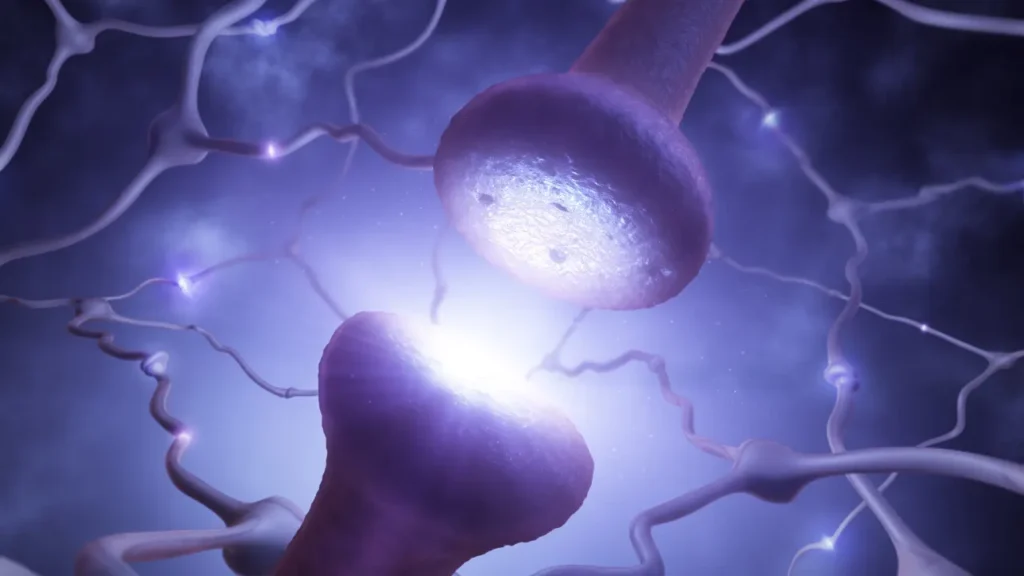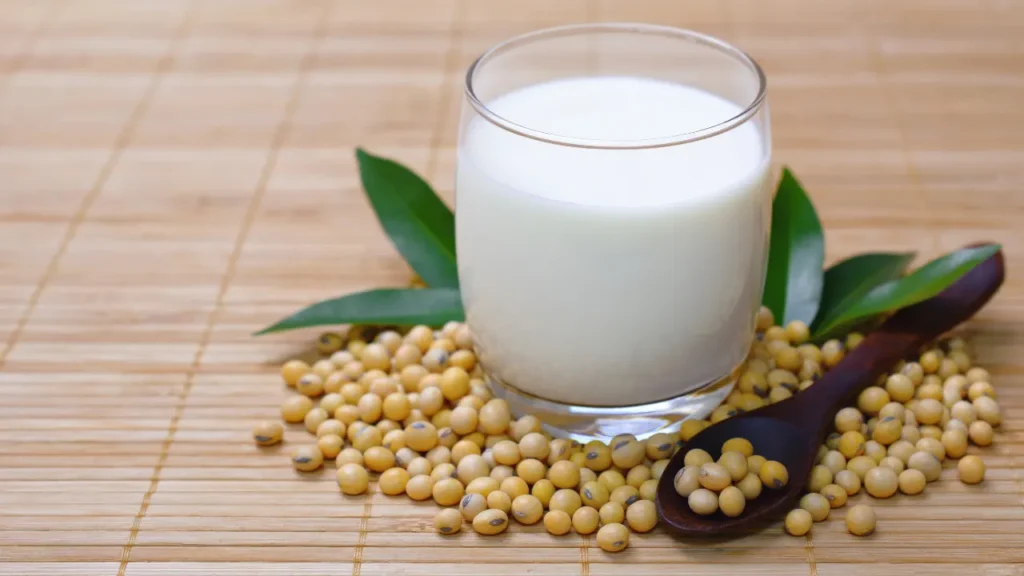Soy is an East Asian-native versatile legume that has long been an essential part of many different cuisines. Not only is this lowly bean highly valued for its nutritional makeup, but it can also offer some cognitive advantages that have attracted the interest of scientists and those who are interested in improving their cognitive abilities. The chemistry of soy, its health advantages, recommended dosages, side effects, possible drug interactions, and recommendations for its responsible use are all covered in this article. It will also explore the abilities to use soy as a nootropic supplement to improve alertness, attention, and cognition.
You May Also Like:
Tragacanth: Benefits, Dosage, Side Effects, Drug Interactions, and Other Important Information
Sida Cordifolia: Benefits, Dosage, Side Effects, Drug Interactions, and Other Important Information
Soy: Benefits, Dosage, Side Effects, Drug Interactions, and Other Important Information is an original (NootropicsPlanet) article.
Nature of Soy
Originating in East Asia, soybeans (glycine max) are a type of legume that is consumed extensively across the globe. They are a flexible food source that can be used to produce a wide range of goods, such as soy sauce, tempeh, tofu, and soy milk. A valuable source of vitamins, minerals, and bio-active substances like isoflavones, soy is also known for having a higher protein content than other legumes. Soy’s possible health advantages and its involvement in different dietary plans are attributed to these nutritional properties.
Health Benefits of Soy
Soy’s health benefits are multifaceted, attributed largely to its composition of isoflavones, proteins, and fibers. Detailed exploration of these benefits reveals how incorporating soy into your diet can positively impact your overall health:
Cardiovascular Health
Consuming soy has been linked to better cardiovascular health. Soy proteins and isoflavones have the ability to lower LDL cholesterol levels and, consequently, the risk of heart disease. According to studies, soy proteins can have an impact on blood lipid levels, lowering triglycerides and cholesterol while also possibly preventing the development of arterial plaque.
Cancer Prevention
Studies reveal a connection between consuming soy and a decreased risk of some diseases, such as prostate and breast cancer. The potential inhibition of tumor growth by isoflavones through the modulation of estrogen receptors can be the property underlying this protective effect. Furthermore, soy’s antioxidant properties can shield cells from DNA damage, which is a risk factor for the development of cancer.
Bone Health
Isoflavones included in soy are thought to have an effect on bone health by preventing bone loss linked to menopause. The ability of isoflavones to imitate the effects of estrogen is essential for preserving bone density. Consuming soy can raise bone mineral density or lower the incidence of fractures, according to several studies, especially in postmenopausal women.
Menopausal Symptoms
The potential of soy isoflavones to reduce menopausal symptoms including hot flashes and night sweats has been undergoing scientific research. These substances have the ability to function as natural estrogens, balancing hormone levels and reducing menopausal pain. Some women report significant improvement from these symptoms with regular soy ingestion, albeit the results are not all that consistent.
Cognitive Function
The association between soy consumption and cognitive health—including memory and executive function—is being investigated by recently developed studies. Soy isoflavones’ estrogen-like properties can contribute to the preservation of brain structure and function, especially in postmenopausal women. To completely understand soy’s effects on cognition and its potential as a nootropic, more research is necessary.
Metabolic Health
Consuming soy has been associated with better metabolic health, which includes reduced risk of type 2 diabetes and better glucose management. Soy’s fiber and protein composition can aid in blood sugar regulation, while isoflavones can enhance insulin sensitivity. This combo can be very helpful in controlling and preventing diabetes and metabolic syndrome.

Chemistry of Soy
Due to the variety of bio-active substances that make up soy, such as proteins, lipids, carbohydrates, and a notable concentration of phytochemicals including isoflavones, saponins, and phenolic acids, the chemistry of soy is rich and complicated. Isoflavones are the ones that have attracted the greatest interest due to their potential health benefits, which include improvements in cognition.
A class of phytoestrogens called isoflavones are formed from plants and have structural similarities to estrogen (17-β estradiol). They have the ability to mimic or modify the effects of estrogen in the body. Soy has three main isoflavones: glycitein, daidzein, and genistein. These substances can interact with estrogen receptors and have a variety of physiological effects since they have both estrogenic and antioxidant properties. Additionally, they have the ability to affect the activity of enzymes that are part of antioxidant defenses, shielding cells from damage and oxidative stress.
Furthermore, it is well known that isoflavones alter signal transduction pathways, which in turn affects gene expression and cellular processes related to development, differentiation, and death. Their alleged health benefits, which range from cardiovascular protection to the reduction of postmenopausal symptoms and perhaps cognitive advantages, depend heavily on this regulation.
Soy’s protein composition, which includes all nine of the essential amino acids required for good health, further adds to its nutritional properties. Research has examined the potential benefits of soy proteins on metabolic health, cholesterol regulation, and neurotransmitter activation in relation to cognitive function.
Physiological Properties of Soy
Soy and its components, especially isoflavones, influence the body and brain through a variety of physiological mechanisms, most of which are associated with their ability to bind to estrogen receptors (ERs). Estrogen receptors come in two primary varieties: ERα and ERβ. Soy isoflavones have a greater affinity for ERβ. This is important because soy isoflavones can affect cognitive abilities and brain health through ERβ expression, which is primarily found in the brain, bone, and cardiovascular system, among other tissues.
Isoflavones can imitate the effects of estrogen or alter the activity of the receptor after attaching to it, causing a range of cellular reactions. These effects can manifest in the brain as improved synaptic plasticity, neuroprotection, and increased neuronal proliferation and differentiation. For instance, it is known that estrogen and estrogen-like substances affect the number and form of neurons’ dendritic spines, which are essential for brain plasticity and synaptic transmission.
Additionally, isoflavones have antioxidant properties that lessen oxidative stress in the brain. One of the main causes of aging is oxidative stress, which is also linked to the emergence of neuro-degenerative illnesses. Isoflavones can help prevent the degeneration of brain cells by scavenging free radicals and lowering oxidative damage.
Moreover, it has been demonstrated that the interaction of soy isoflavones with estrogen receptors influences neurotransmitter systems, such as those involving acetylcholine and serotonin, which are essential for mood regulation and cognitive processes like memory and learning.

Optimal Dosage
The best soy dosage for improving cognitive function is difficult to determine because it varies based on your age, sex, and overall health. The majority of trials have used isoflavone supplements in dosages between 30 and 120 mg daily. To fully benefit from soy, including its dietary fiber and protein content, it is generally advised to consume the bean in its natural form through meals like tofu, soy milk, and edamame. It is also important to use caution while supplementing because taking an excess of isoflavones can have negative consequences.
Side Effects
Although soy is thought to be healthy for the majority of people, large quantities of isoflavones from soy can have moderate side effects such bloating, constipation, and cause an upset stomach. A further worry is that because soy isoflavones have estrogen-like properties, they can have an impact on hormone-sensitive diseases like breast cancer. But the data is still conflicting, and modest soy consumption is generally regarded as safe.

Potential Substance Interactions
Certain drugs and chemicals can interact with soy, reducing their effectiveness. For example, soy isoflavones can alter the way that thyroid hormone replacement medication functions, necessitating dosage modifications. Furthermore, due to their estrogenic properties, soy products can interact with hormone therapies, such as hormone replacement therapy and contraceptive medications, requiring careful management and physician consultation.
Best Responsible Use
For individuals interested in using soy as a nootropic supplement, the following guidelines are recommended:
• Prior to thinking about starting soy supplements, start the diet with moderate amounts of soy.
• Speak with a healthcare professional, especially if you take medication or have any underlying medical concerns.
• Observe how your body reacts to consuming more soy and make any necessary adjustments.
Choose natural, minimally processed soy products to reduce your intake of additives and optimize your nutritional value.
Soy:
Conclusion
Soy protein, derived from soybeans, has been a subject of interest due to its potential health benefits. While it is widely used as a dietary supplement, scientific evidence remains limited. Recent studies suggest that soy protein can have anti-inflammatory, anticancer, and antioxidant effects, but further research is needed to fully understand its advantages and optimal dosage. Moderate consumption of soy foods in adults is unlikely to have side effects; it can even benefit cardiovascular health and reduce cancer risks. However, consuming large amounts of soy foods for extended periods could pose problems. When considering soy supplements, it is essential to exercise caution and consult a healthcare professional. Remember, soy protein holds promise, but informed decisions are crucial for your well-being.

References:
- SOY ISOFLAVONES. Retrieved from:https://www.alzdiscovery.org/cognitive-vitality/ratings/soy-isoflavones#:~:text=Soy%20isoflavones%20bind%20to%20an,%2Dinflammatory%20activities%20%5B11%5D.
- Effects of soy isoflavones on cognitive function: a systematic review and meta-analysis of randomized controlled trials. Retrieved from: https://www.ncbi.nlm.nih.gov/pmc/articles/PMC7808187/
- Effect of soybean supplementation on the memory of alprazolam-induced amnesic mice. Retrieved from: https://www.ncbi.nlm.nih.gov/pmc/articles/PMC3147100/
- 10 Incredible Health Benefits Of Soy Proteins! Retrieved from: https://soyproteincn.com/10-incredible-health-benefits-of-soy-proteins/
Important Note: The information contained in this article is for general informational purposes only, and should not be construed as health or medical advice, nor is it intended to diagnose, prevent, treat, or cure any disease or health condition. Before embarking on any diet, fitness regimen, or program of nutritional supplementation, it is advisable to consult your healthcare professional in order to determine its safety and probable efficacy in terms of your individual state of health.
Regarding Nutritional Supplements Or Other Non-Prescription Health Products: If any nutritional supplements or other non-prescription health products are mentioned in the foregoing article, any claims or statements made about them have not been evaluated by the U.S. Food and Drug Administration, and such nutritional supplements or other health products are not intended to diagnose, treat, cure, or prevent any disease.


